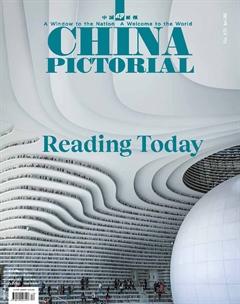Tracing Chinese People’s Reading Memories
by Gong Haiying
The chosen reading material of Chinese people throughout history reveals much about the era in which they lived. Since the founding of the Peoples Republic of China in 1949, the places, media, content, and consumption methods of Chinese reading have changed profoundly with the times. The practice moved past paper to e-books and from renting books to collecting them. However, passion for reading and acquiring knowledge has remained consistent.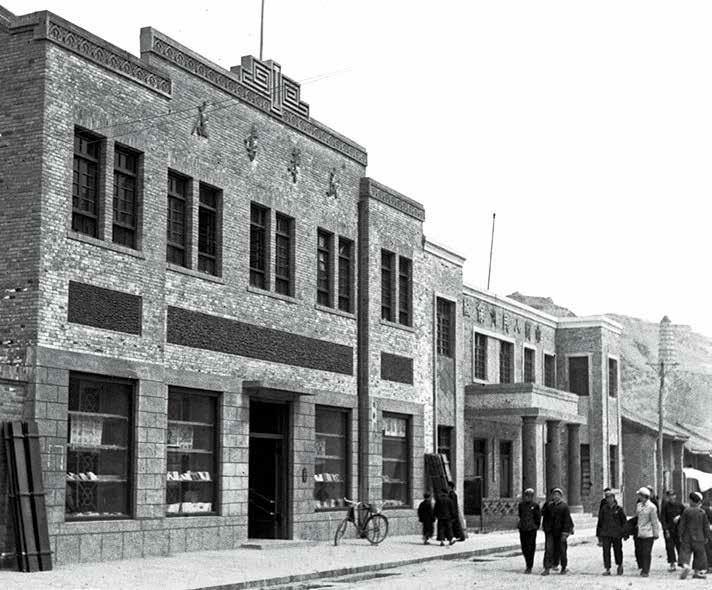
Since it was first established in Yanan in 1937, Xinhua Bookstore has opened branches across China and become a venue to acquire knowledge for generations of Chinese people. Pictured is a newly opened Xinhua Bookstore in Yanan in 1954. by Hu Yue/Xinhua
The photo shows an unmanned book stall in 1952. To make it easier for people to buy and read books, Xinhua Bookstore introduced its first unmanned bookstore in Shanghai in May 1950. All books were labeled with price, and buyers dropped money into a cash box. CFB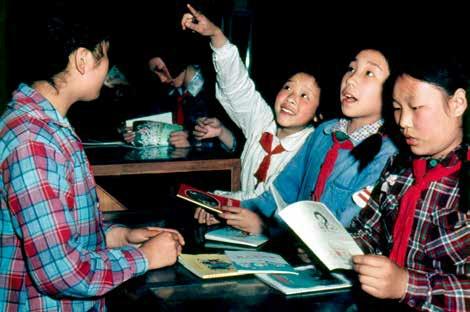
This 1959 photo shows young readers asking a salesperson for books at a Xinhua childrens bookstore. by Li Shu/CFB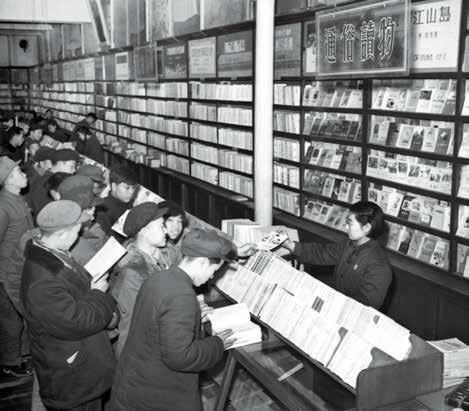
Since the founding of the Peoples Republic of China, Chinese peoples living standards have improved dramatically. This 1955 photo shows a Xinhua Bookstore in Beijing packed with people during a weekend. Except for a few sample books, the inventory was kept behind a counter, and customers had to ask an employee for a title. CFB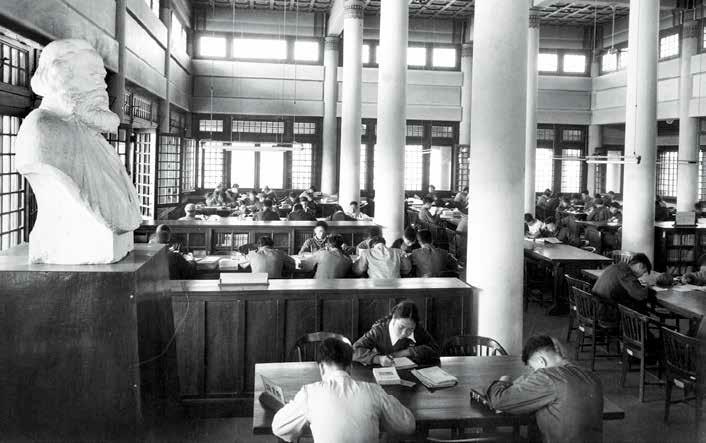
From the 1950s to the 1980s, libraries were the primary public places to read to avoid standing in a Xinhua Bookstore. Pictured is the old National Library of China in 1950. CFB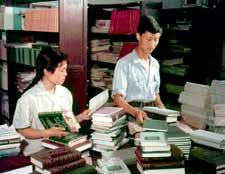
After the founding of the Peoples Republic of China in 1949, book exchange between the National Library of China and its foreign counterparts developed fast. The library established a book exchange relationship with 135 institutions in 38 countries during the 1950s. The photo shows staff of the National Library of China organizing foreign books in 1955. by Zheng Guanghua/CFB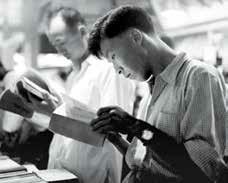
The photo shows people reading at a book stall in 1956. Back then, many second-hand books about literature, science, and technology were displayed at book stalls in Beijing Dongan flea market, which consistently attracted readers. by A. Hoffmann/CFB

This 1972 photo shows two students reading a comic book by a river in Guilin, Guangxi Zhuang Autonomous Region. by Zi Ming/CFB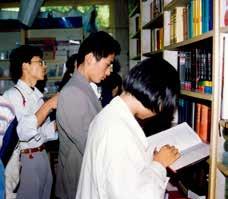
This 1995 photo shows a bookstore at Peking University packed with customers. Newly enrolled students flooded into the bookstore to buy books and other reading materials, seeking to adapt to the intense schedule and heavy workload at Peking University, one of the countrys top institutions of higher learning. by Chen Jian/China Pictorial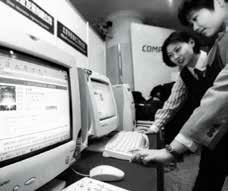
Established in 1998, the Beijing Book Building remains the largest state-owned bookstore with the most diverse offers in Beijing. To meet the new demands of readers in the internet era, it opened an online bookstore offering 160,000 titles on March 9, 1999, becoming the first Chinese bookseller to adopt digital operations. by Qi Heng/Xinhua

